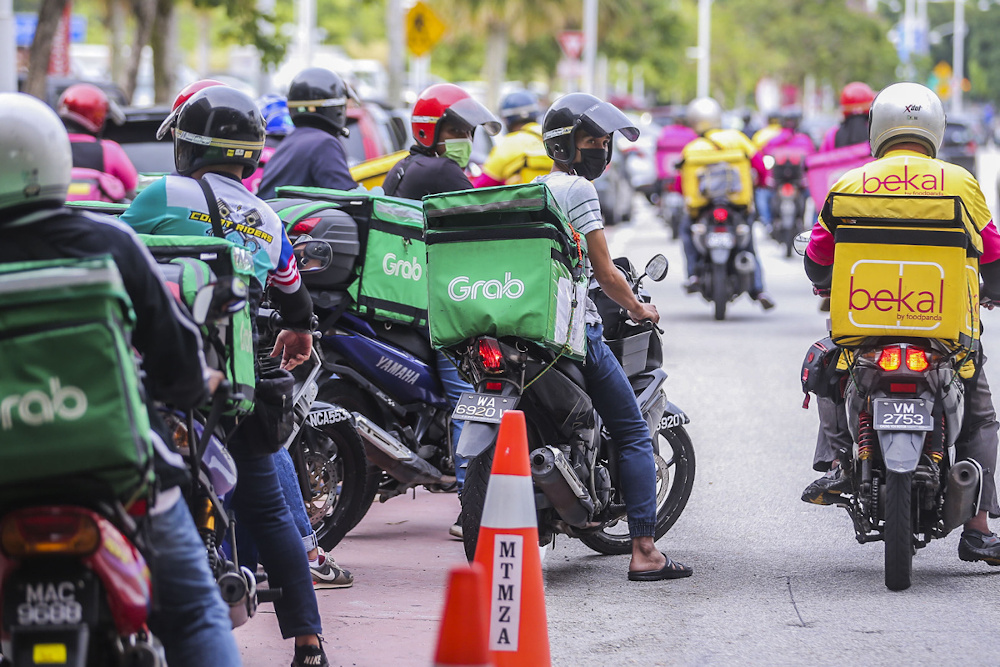KUALA LUMPUR, May 17 — With the reopening of all economic activities, e-hailing riders who mostly provide food delivery services are reporting a downtrend in demand.
Persatuan Penghantar P-Hailing Malaysia (loosely translated to Malaysian E-Hailing Riders’ Association) or Penghantar for short told Malay Mail there was a definite drop after the country moved into the final phase of the National Recovery Plan (NRP) late last year.
“My guess would be about a 10 per cent drop for orders. For riders, many have left, around 25 per cent,” said Penghantar vice president Abdul Hakim Abdul Rani.
Abdul Hakim added that many riders went back to their old jobs.
“So there is not much effect on the [earning capacity of the] current riders even though there are fewer orders, but also fewer riders competing with one another,” he said, when asked if there was a decline in riders’ incomes.
“Now we are more worried about traffic accidents involving the riders. There are now more vehicles on the road, right?
“So we’ve been pushing for riders to take up the government’s subsidised Self-employment Social Security Scheme, to protect them. It costs less than RM50 a year for certain plans,” he added.
Muhammad Izzat Mansor, 28, a rider who works with various companies like Grab and Lalamove, agreed that there has been a “slight” drop in orders, especially during non-peak hours.
“Riders too have dropped but maybe by a very small amount,” he said when met in Bandar Puteri, Puchong recently.
Another rider, who just wanted to be identified as Khairul A., said that those who are still working full-time as e-hailing riders may not feel the decrease in orders.
This, he explained, was because delivery service providers such as Grab and Foodpanda use a grading system, where those who work more often get a higher priority in receiving orders.
“For me, I have reduced doing Grab,” he said.
Khairul recently got offered back his old job as a photographer, albeit under a contract basis, and he started just three weeks ago.
“So when we go on Grab, we can see that sometimes we have to wait longer to get orders. But sometimes it’s okay too,” he said, adding that he usually does deliveries around Bangsar and Sri Hartamas.
Meanwhile, when asked to comment if there has been a reduction of orders through their app, Foodpanda told Malay Mail in a statement: “Demand and supply fluctuations are common for the business, factoring in various aspects such as the pandemic.”
The company then added that it had begun partnering with restaurants to offer deals on its app to walk-in customers, in anticipation of people preferring to dine in at stores.
“Numerous efforts are being taken, such as running regular campaigns with deals and discounts to ensure deliveries and pick-up are accessible and affordable for customers while continuing to provide a steady source of income for vendors and delivery partners,” it said.



















